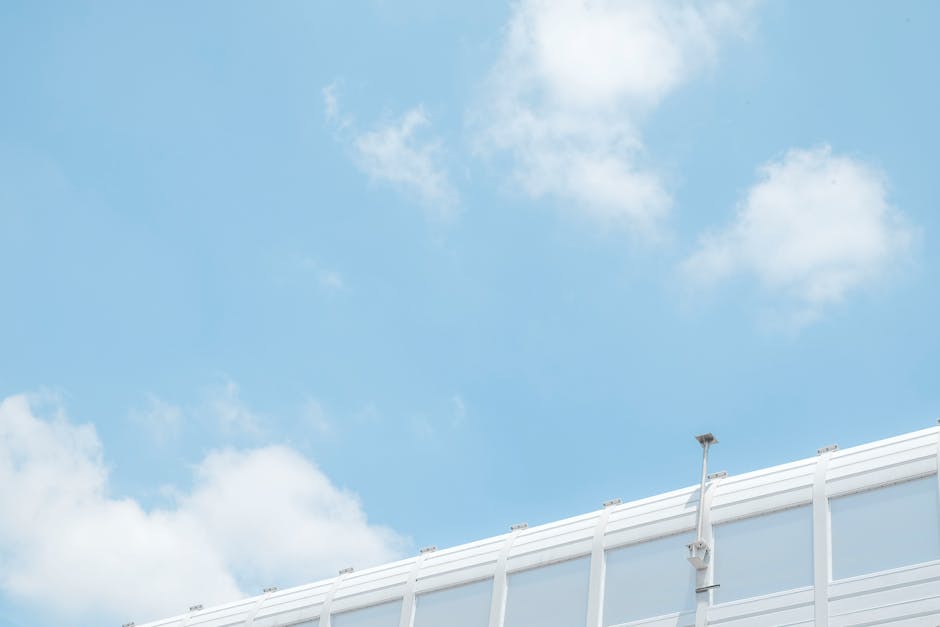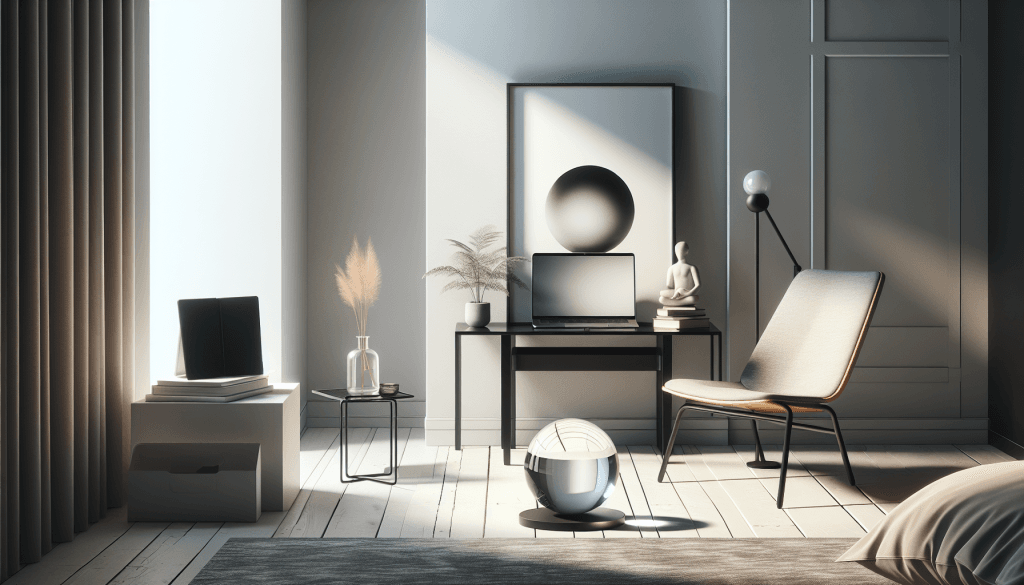How Does Digital Minimalism Contribute To Mental Clarity?
In a world buzzing with notifications, endless scrolling, and digital noise, digital minimalism offers a refreshing escape. By intentionally reducing your digital clutter, you can create space for clearer thinking, better focus, and a calmer mind.
But why does this matter? Because mental clarity isn’t just a luxury—it’s essential for navigating life’s challenges, making decisions, and finding joy in the present moment. Stick around, and we’ll explore how embracing digital minimalism can transform your mental well-being.
Key Takeaways
Digital minimalism helps reduce distractions and mental fatigue caused by constant notifications and information overload.
It fosters mindfulness, allowing you to regain control over your thoughts and focus.
By improving communication and relationships, it enhances emotional well-being.
Digital minimalism boosts productivity by promoting deep work and intentional living.
Introduction to Digital Minimalism
Definition of Digital Minimalism
At its core, digital minimalism is about using technology intentionally. It’s not about ditching your devices entirely but about curating your digital life to focus on what truly matters.
Think of it as spring cleaning for your mind—getting rid of unnecessary apps, notifications, and habits that clutter your mental space.
Importance of Mental Clarity in a Hyper-Connected World
In today’s fast-paced digital age, mental clarity often feels like a rare gem. With constant pings and endless streams of information, our brains are in overdrive.
This mental chaos can lead to stress, anxiety, and even burnout. Achieving clarity is like hitting the pause button, giving your mind the chance to breathe and reset.
Overview of How Digital Minimalism Promotes Mental Clarity
By cutting out digital distractions, you can focus on what truly matters. Digital minimalism encourages mindfulness, deeper thinking, and intentional living—all of which contribute to a clearer, more peaceful mind.

Reducing Digital Distractions
The Impact of Constant Notifications and Multitasking on Mental Clarity
Imagine trying to read a book while someone taps you on the shoulder every five seconds. That’s what constant notifications do to your brain.
They interrupt your focus, making it harder to complete tasks or think deeply. Multitasking, often glorified, actually divides your attention and reduces efficiency.
Filtering Unnecessary Information to Avoid Mental Fatigue
Our brains aren’t designed to process the sheer volume of information we encounter daily. This overload can leave you feeling drained and unfocused.
Strategies for Curating Digital Content
Start by unfollowing accounts that don’t add value to your life. Organize your email inbox and turn off non-essential notifications.
Apps like Freedom or Focus@Will can help you limit distractions and stay on track.
Benefits of Consuming Intentional and Meaningful Information
When you’re selective about what you consume, your mind feels lighter. You’ll notice improved focus, better decision-making, and a sense of calm.
The Role of Screen Breaks in Resting the Mind
Taking regular breaks from screens is like giving your brain a mini-vacation. Step outside, stretch, or simply close your eyes for a few minutes.
These moments of rest can recharge your mental batteries and improve clarity.

Embracing Mindfulness Through Digital Minimalism
Regaining Control Over Mental Space in a Fast-Paced Digital Environment
When you reduce digital clutter, you reclaim control over your mental space. It’s like clearing a messy desk—you can finally see what’s important.
The Power of Silence in Achieving Mental Clarity
Silence is underrated. In a world filled with noise, moments of quiet allow your thoughts to settle and your mind to focus.
Allowing Thoughts to Settle
Think of your mind as a snow globe. When shaken, it’s cloudy and chaotic. But when left still, the snow settles, and clarity emerges.
Enhancing Focus and Deeper Thinking
Silence fosters deep thinking. Without distractions, you can dive into your thoughts, solve problems, and spark creativity.
Slowing Down to Foster Mental Clarity
Slowing down doesn’t mean being lazy—it means being intentional. By embracing a slower pace, you can savor moments, reduce stress, and think more clearly.

Enhancing Communication and Relationships
Engaging in Meaningful Conversations Over Superficial Interactions
Digital minimalism encourages you to prioritize real connections over shallow interactions. Instead of liking a post, call a friend.
Meaningful conversations nourish your soul and strengthen relationships.
Mastering Effective Communication Through Reduced Digital Noise
When your mind isn’t cluttered, you can express yourself more clearly. This leads to better communication and deeper connections.
Clearer Thoughts and Better Expression of Ideas
A clear mind translates to clear communication. You’ll find it easier to articulate your thoughts and share your ideas.
Building Stronger Personal Connections
By being present and attentive, you can build stronger, more meaningful relationships.
For more on how minimalism impacts mental health, check out this article (source).
Overcoming Public Speaking Anxiety with Digital Minimalism Practices
Digital minimalism can even help with public speaking. By reducing distractions, you can focus on your message and deliver it with confidence.

Boosting Productivity and Focus
The Concept of Deep Work and Its Connection to Mental Clarity
Deep work—focusing on a single task without distractions—is a game-changer. It allows you to produce high-quality work and think deeply.
Overcoming Digital Overload to Reclaim Focus
Digital overload scatters your attention. By minimizing distractions, you can reclaim your focus and work more efficiently.
How Digital Minimalism Enhances Productivity and Mental Well-Being
When you’re not constantly checking your phone, you have more time and energy for what truly matters. This boosts both productivity and mental health.
For more on how digital detoxing can improve mental clarity, read this guide (source).
Practical Steps to Adopt Digital Minimalism
Identifying and Eliminating Unnecessary Digital Habits
Start by tracking your screen time. Identify apps or habits that don’t add value and eliminate them.
Setting Boundaries for Screen Time and Device Usage
Set specific times for checking emails or social media. Use tools like app timers to enforce these boundaries.
Incorporating Mindfulness Practices into Daily Routines
Mindfulness practices like meditation or journaling can complement digital minimalism. They help you stay present and focused.
For tips on mindfulness, explore this visualization meditation guide (source).

Conclusion
Recap of the Benefits of Digital Minimalism for Mental Clarity
Digital minimalism isn’t just about decluttering your devices—it’s about decluttering your mind. By reducing distractions, fostering mindfulness, and prioritizing meaningful connections, you can achieve greater mental clarity.
Encouragement to Embrace Digital Minimalism for a Healthier Mind and Life
So, why not give it a try? Start small—turn off a few notifications, take a screen break, or have a tech-free evening.
Your mind will thank you. And who knows? You might just discover a clearer, calmer, and happier version of yourself.
For more insights on mental clarity, check out this article on journaling and its impact on self-discovery.
FAQ: How Digital Minimalism Can Bring Mental Clarity to Your Life
What is digital minimalism?
Digital minimalism is a lifestyle approach that encourages intentional use of technology by focusing only on tools and platforms that add significant value to your life. It involves decluttering digital distractions to create more mental space and clarity.
How does digital minimalism improve mental clarity?
By reducing unnecessary digital noise, digital minimalism helps free up cognitive resources. This allows your brain to focus better, reduces decision fatigue, and minimizes the mental clutter caused by constant notifications and information overload.
What are some practical steps to practice digital minimalism?
Start by auditing your digital habits, such as tracking screen time or identifying apps that drain your energy. Then, set boundaries like scheduled tech-free hours, disable non-essential notifications, and delete apps or accounts that don’t serve a meaningful purpose.
Can digital minimalism reduce stress and anxiety?
Yes, digital minimalism can reduce stress and anxiety by limiting exposure to overwhelming content, such as social media comparisons or endless news cycles. It creates space for mindfulness and helps you focus on what truly matters.
How does digital minimalism impact productivity?
Digital minimalism enhances productivity by eliminating distractions and fostering deep work. With fewer interruptions, you can concentrate on tasks more effectively and achieve better results in less time.
Does digital minimalism mean giving up technology entirely?
Not at all. Digital minimalism is about intentional use, not complete avoidance. It encourages you to use technology in a way that aligns with your values and goals, rather than letting it control your time and attention.
What are the long-term benefits of digital minimalism?
Long-term benefits include improved mental clarity, better focus, stronger relationships, and a greater sense of fulfillment. By prioritizing meaningful activities over mindless scrolling, you can lead a more intentional and balanced life.
How does digital minimalism affect relationships?
Digital minimalism can strengthen relationships by encouraging more face-to-face interactions and meaningful conversations. By reducing screen time, you can be more present and attentive with loved ones, fostering deeper connections.
Is digital minimalism suitable for everyone?
Yes, digital minimalism can benefit anyone, regardless of their lifestyle or profession. However, the approach may vary depending on individual needs and goals. It’s about finding a balance that works best for you.
How can I maintain digital minimalism in the long run?
To maintain digital minimalism, regularly reassess your digital habits and make adjustments as needed. Stay mindful of your technology use, set clear boundaries, and periodically detox from unnecessary digital distractions to keep your mental clarity intact.



